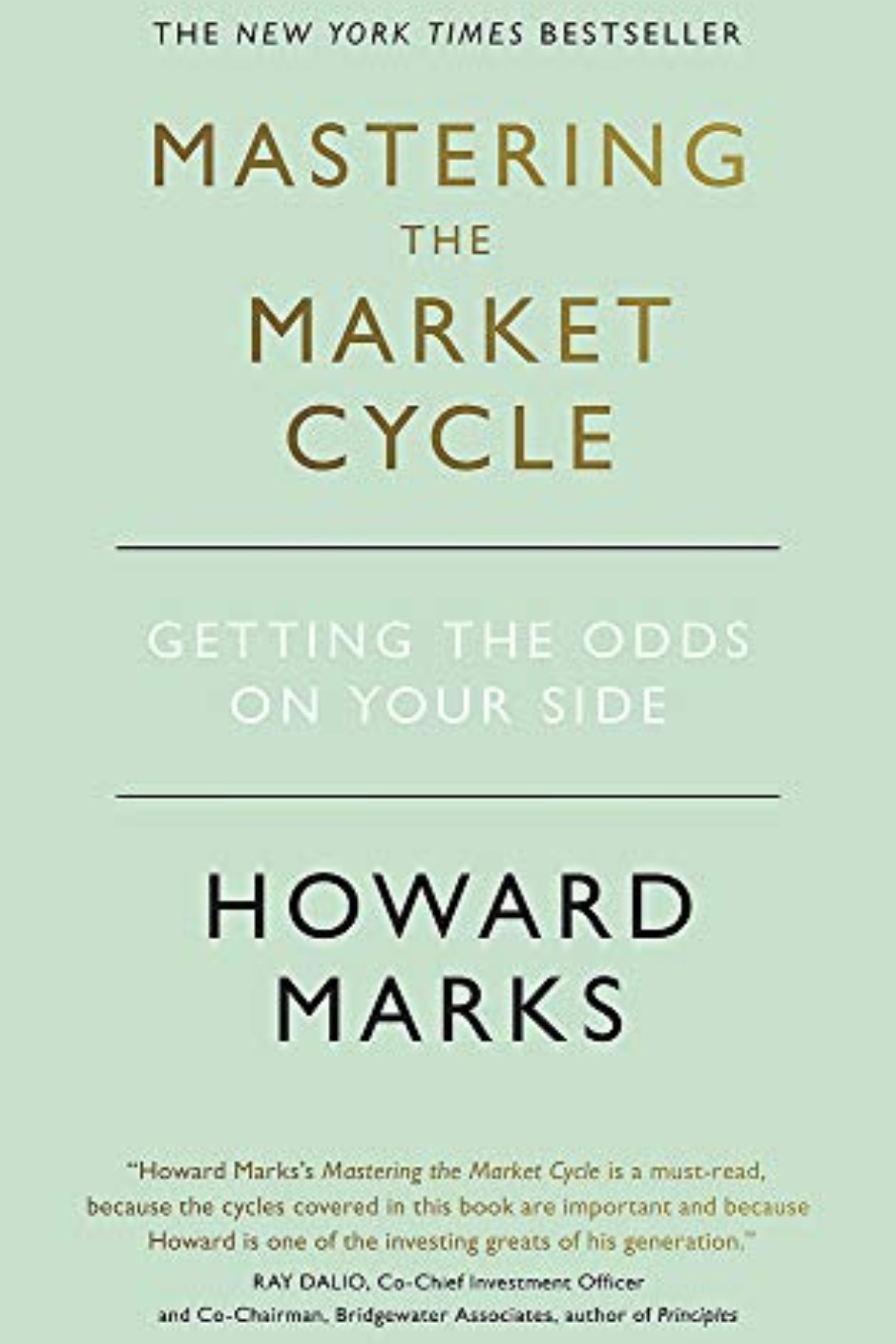What the wise man does in the beginning, the fool does in the end.
- "Howard Marks"
I don't exactly recall when my fascination with cycles began, but it likely ignited after reading the book Why We Sleep There, I learnt circadian rhythm, the core of human existence, the very essence of our survival. I realised that not only do rhythmic cycles govern our sleep, but they also pervade every aspect of life, psychology, activities, and existence in this world. Activities in the Business world are not an exemption; rather, market cycles have a profound impact on business activities. Eager to explore what drives cycles, how to identify them, and how to benefit from understanding their dynamics in the business environment, I turned to the book, Mastering the Market Cycle: Getting the Odds on Your Side, written by Howard Marks, co-founder of Oaktree Capital Management. While this insightful book answered many of my queries, it only addressed half of my doubts, leaving me with a thirst for further understanding.
Mastering the Market Cycle was both enlightening and somewhat disappointing. Howard clearly explains the basics of cycles, illustrating their positions from low to high and the pendulum-like motion between these points. Drawing from real-world events like the financial crises in the '90s and 2008, Howard delves into how cycles develop. He emphasises human behavior and psychology as driving factors of the cycles, asserting that our own behaviors help create these cycles. Individuals are constantly influenced by the people, activities, and events around them, leading to shifts in behavior and psychology. It reminded me of the book Thinking, Fast and Slow by Daniel Kahneman. These influences are not necessarily negative; rather, they add dynamism and complexity to the business world, making it an ever-changing and intriguing field. I could not image a world without these elements.
Another highlight is Howard's insights into assessing the current market climate, distinguishing between vibrant and sluggish markets. As he wrote, "When others are recklessly confident and buying aggressively, we should be highly cautious; when others are frightened into inaction or panicked selling, we should become aggressive." The future is, indeed, unpredictable, and there's no guarantee that what has worked in the past will work again. It also reminds me of an interview I once had with a partner from a strategy consulting firm, where he mentioned that market size predictions are never entirely correct and are constantly changing. I guess this is again why it is rewarding to play with market. As Howard penned, we may never know where we're going, but we must have a good idea of where we are. Understanding market position is not as simple as it might sound. It requires both experience and knowledge to evaluate the intrinsic value of assets, and perhaps a bit of luck. An old Chinese saying illustrates this complexity: "Those involved in the matter are easily blinded to the truth, and those not involved can see things clearly." From hindsight, we all recognise the wisdom in this observation.
On the downside, the book's repetitive nature detracts from its overall appeal. Whole sections seem to echo the same points, causing a loss of engagement. The introduction alone seemed to account for a quarter of the content, leading to the meat of the book only to have it repeated throughout. This repetition dulled the reading experience, and I found myself skipping over familiar paragraphs. It could have been half as long if the book had been written in more concise language without redundancy. This aspect of the writing left me somewhat disappointed, or perhaps, I expect too much from this book.
Another disappointment was the lack of in-depth exploration from a more academic or professional investment perspective. The explanations seemed only to skim the surface, akin to explaining only what's above the iceberg while leaving the deeper intricacies hidden beneath. I struggled to find insights on how to truly evaluate where one is in a cycle, though perhaps this book never intended to answer such complex questions. After reading it, I felt that while I might have learned something about cycles, my understanding didn't fundamentally change, leaving me with the sense that something vital was missing.
Mastering The Market Cycle is an excellent starting point for those unfamiliar with financial or business cycles. However, seasoned financial professionals might find it less satisfying. Nevertheless, cycles are a fascinating phenomenon, and their underlying logic deserves exploration. Understanding them can undoubtedly aid in making better business decisions,
